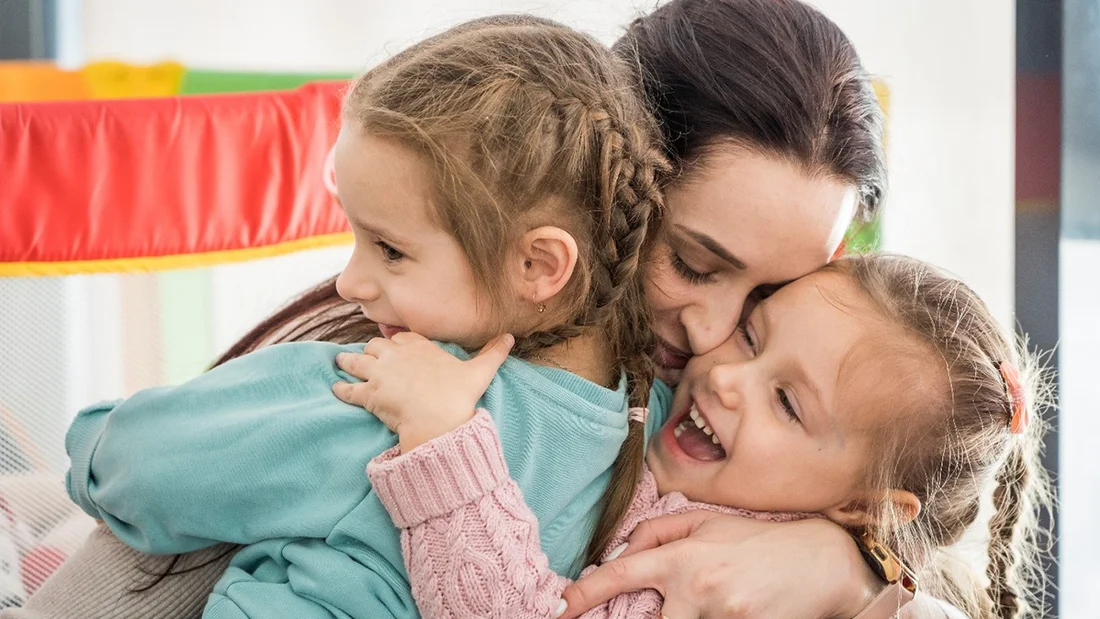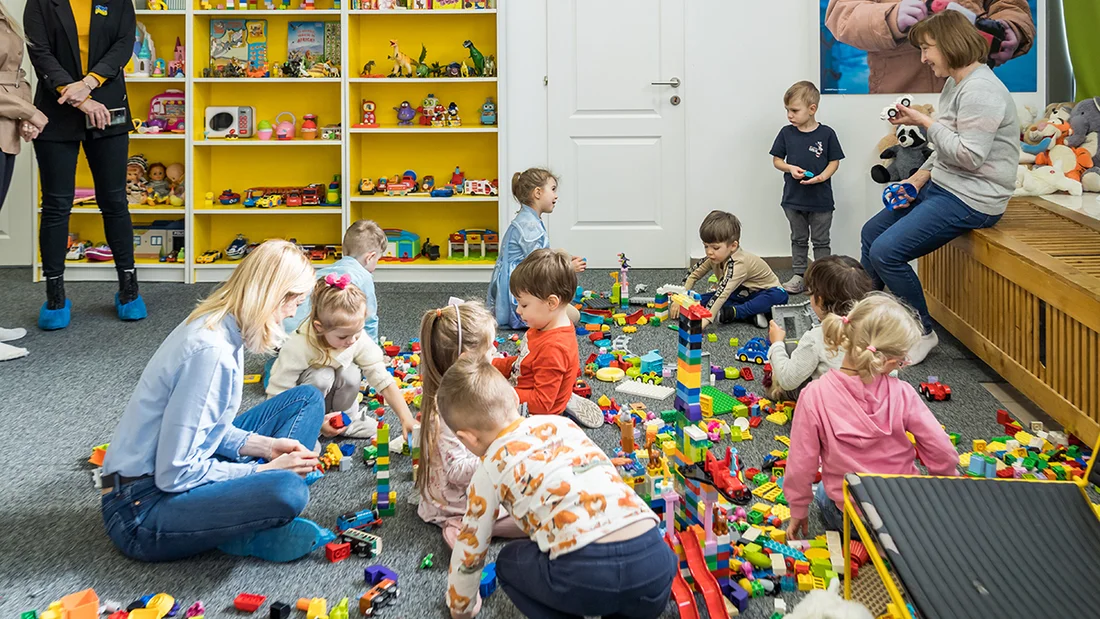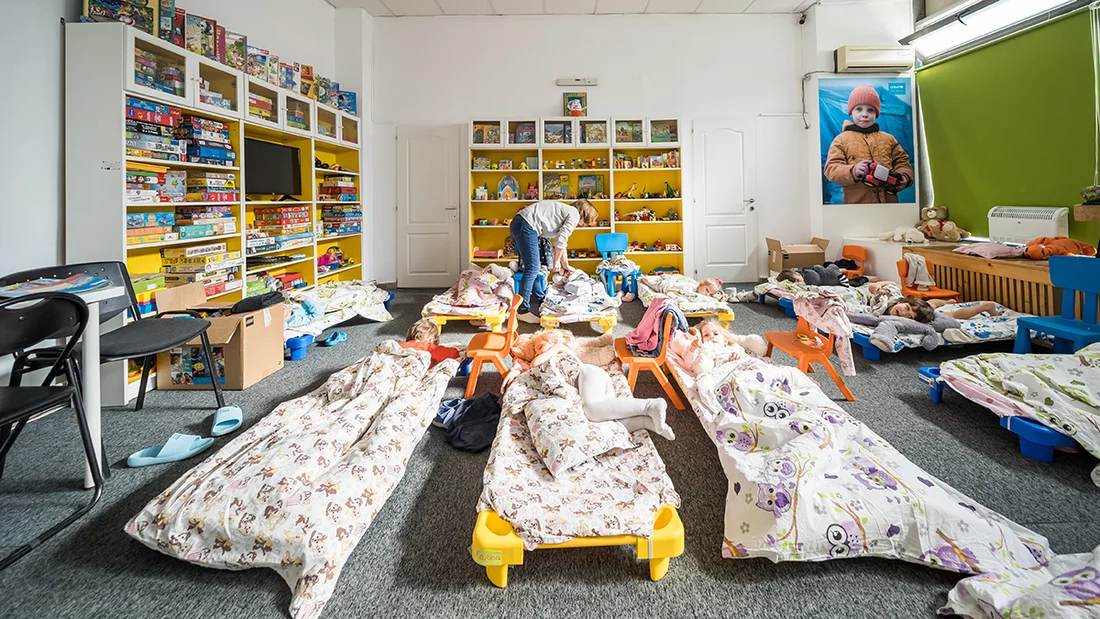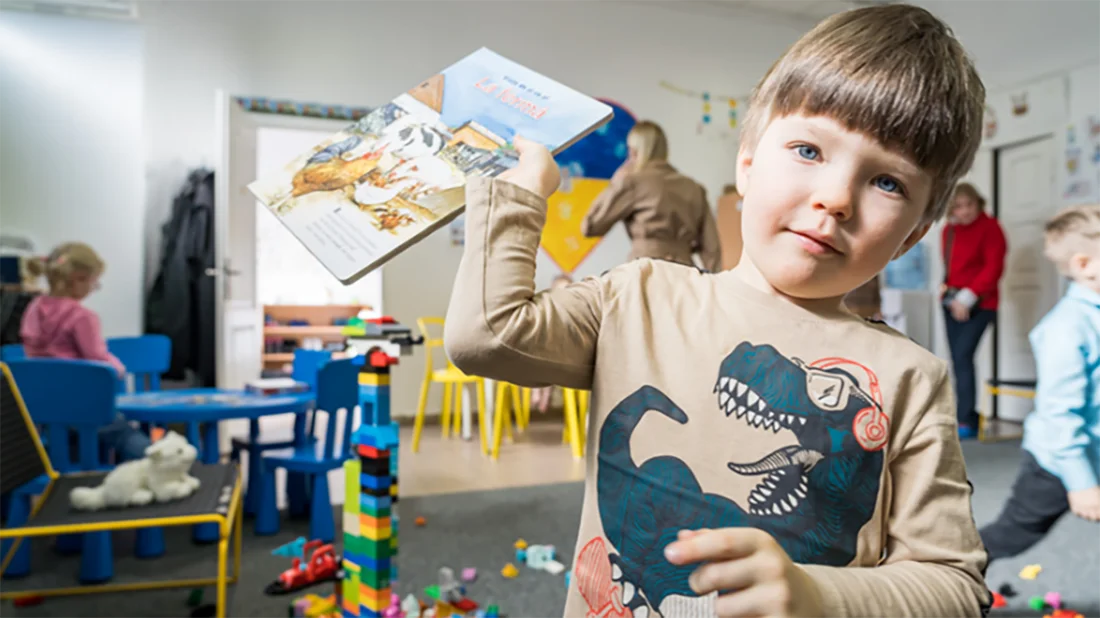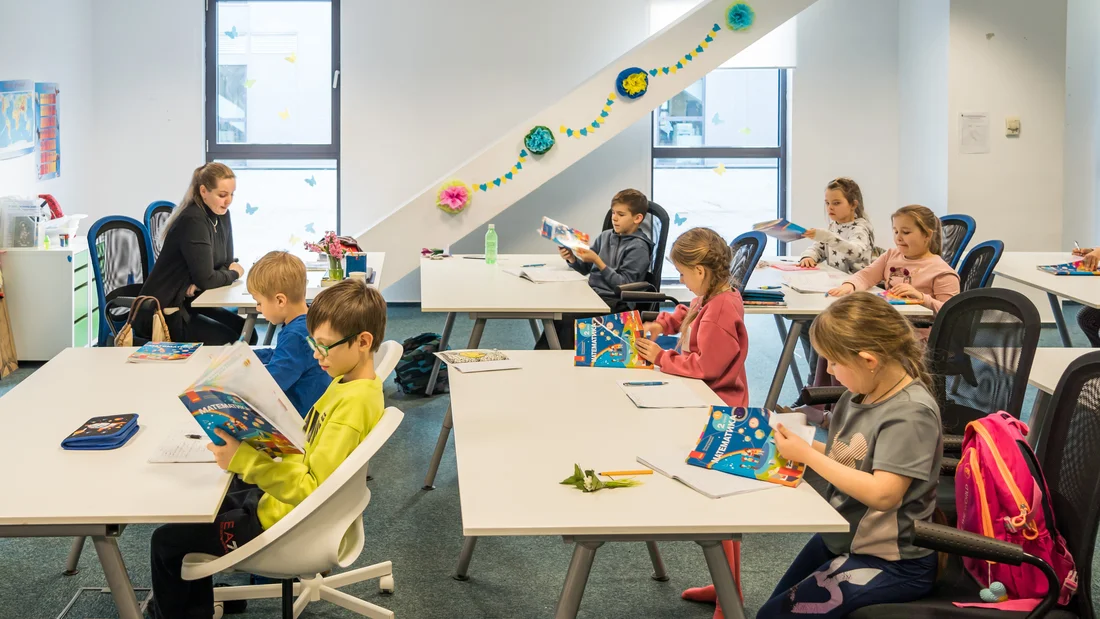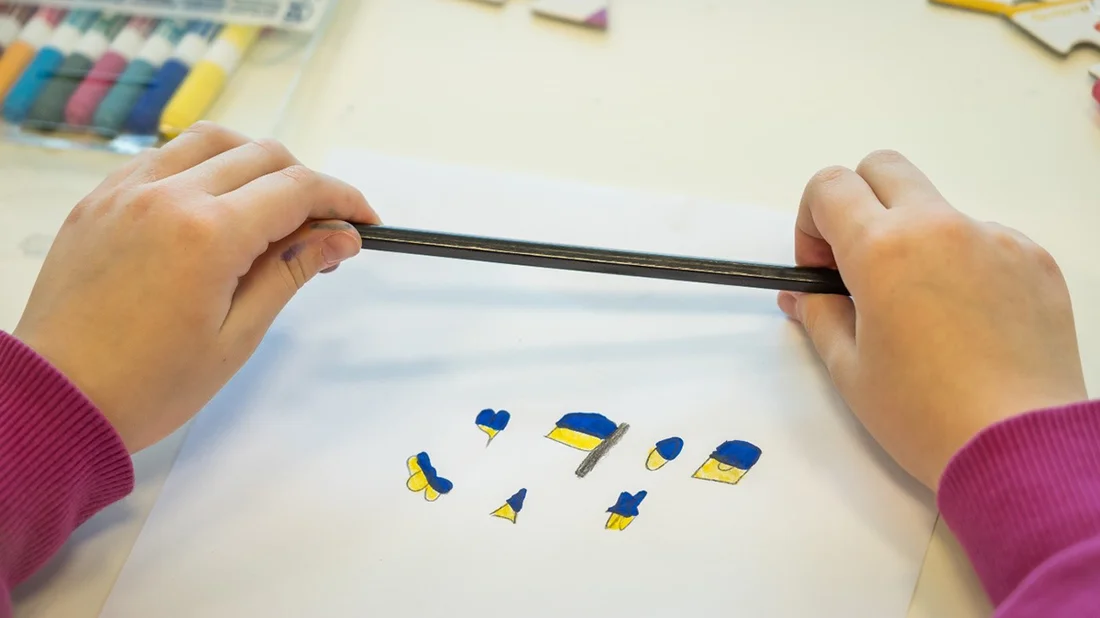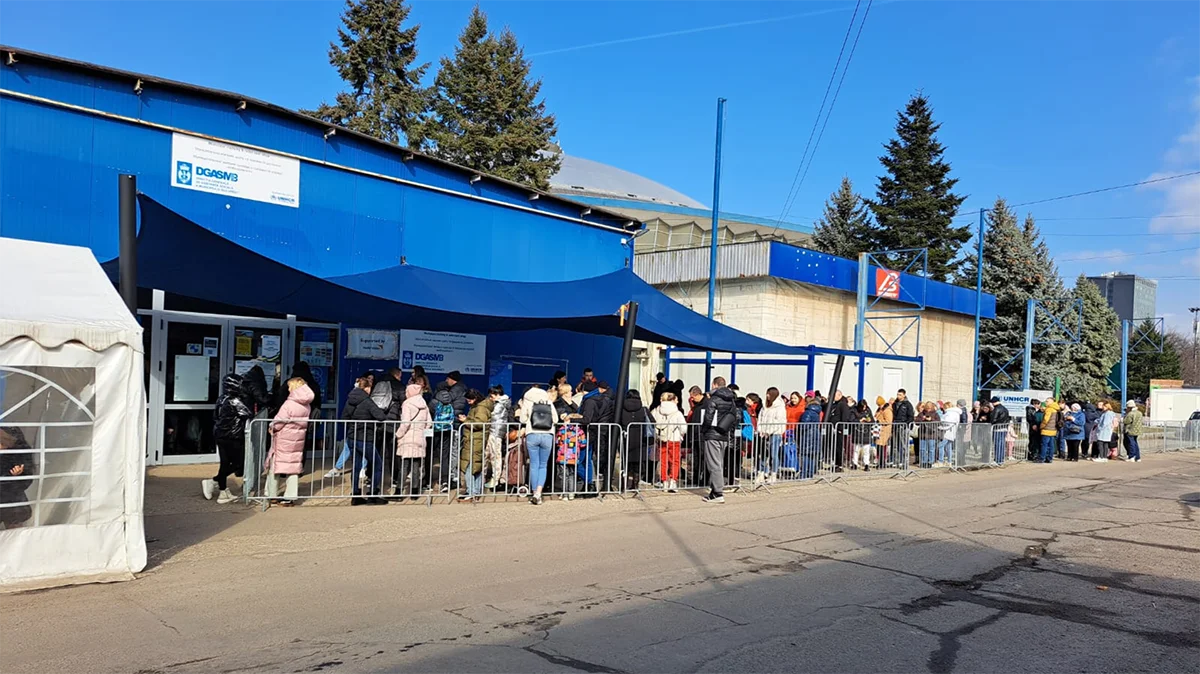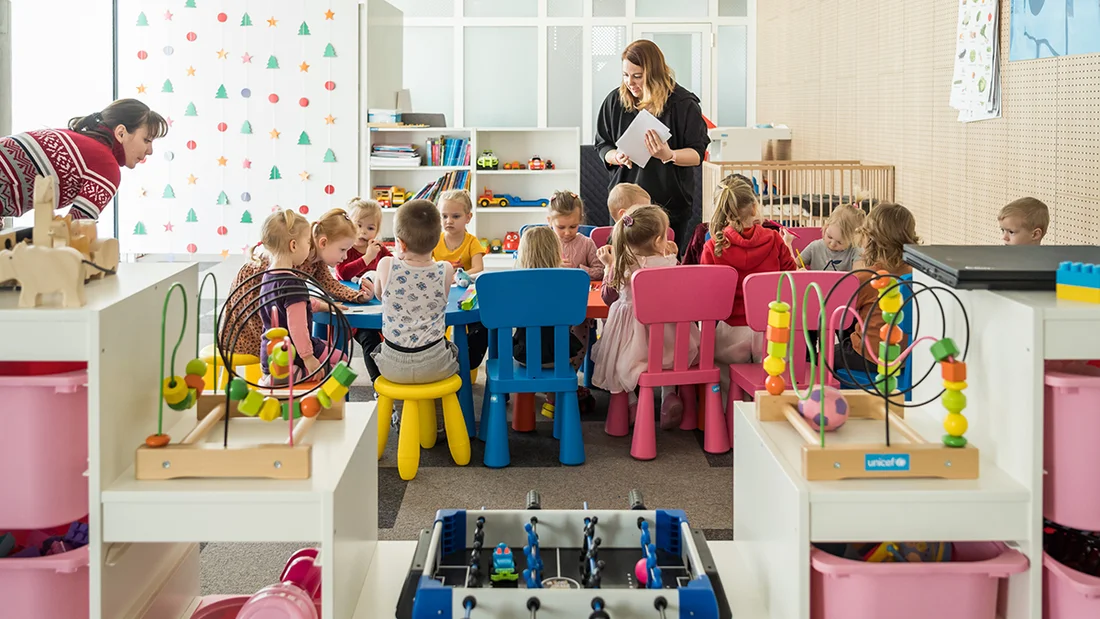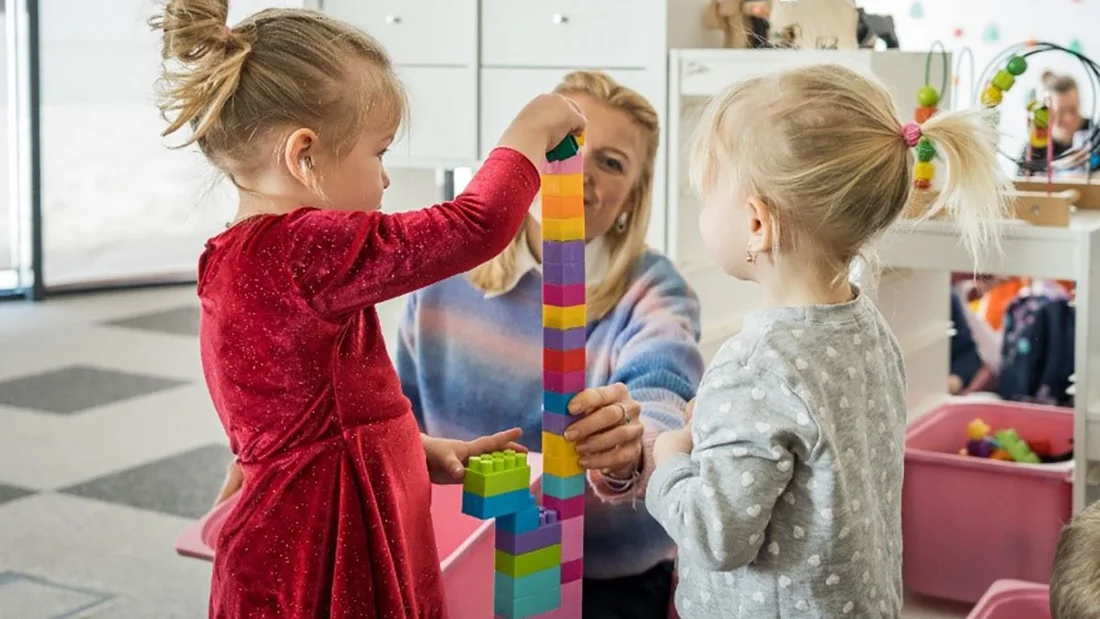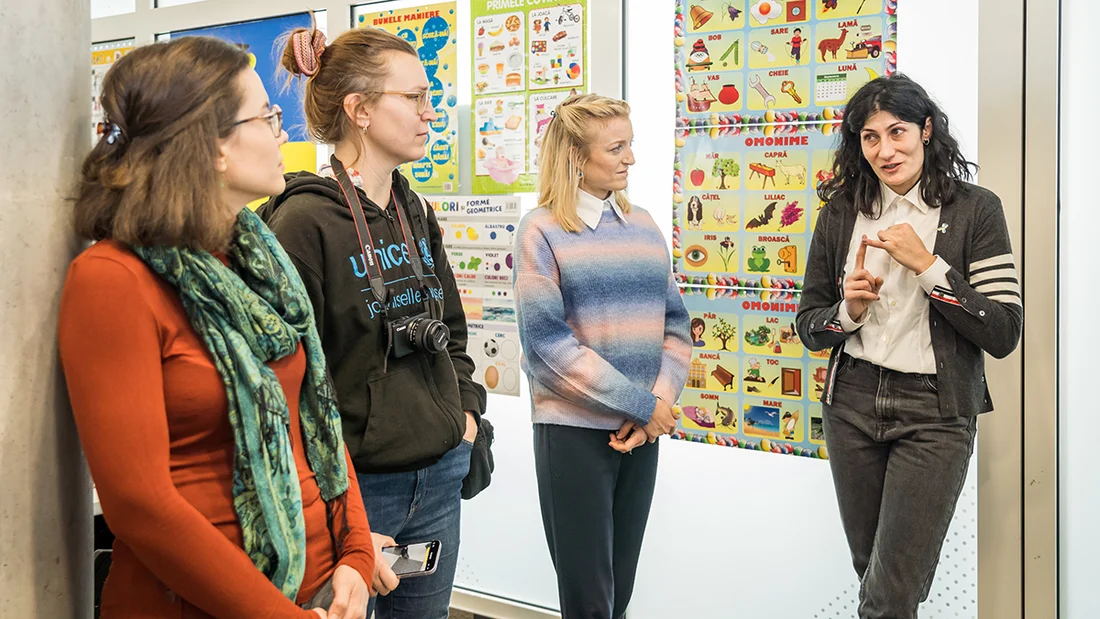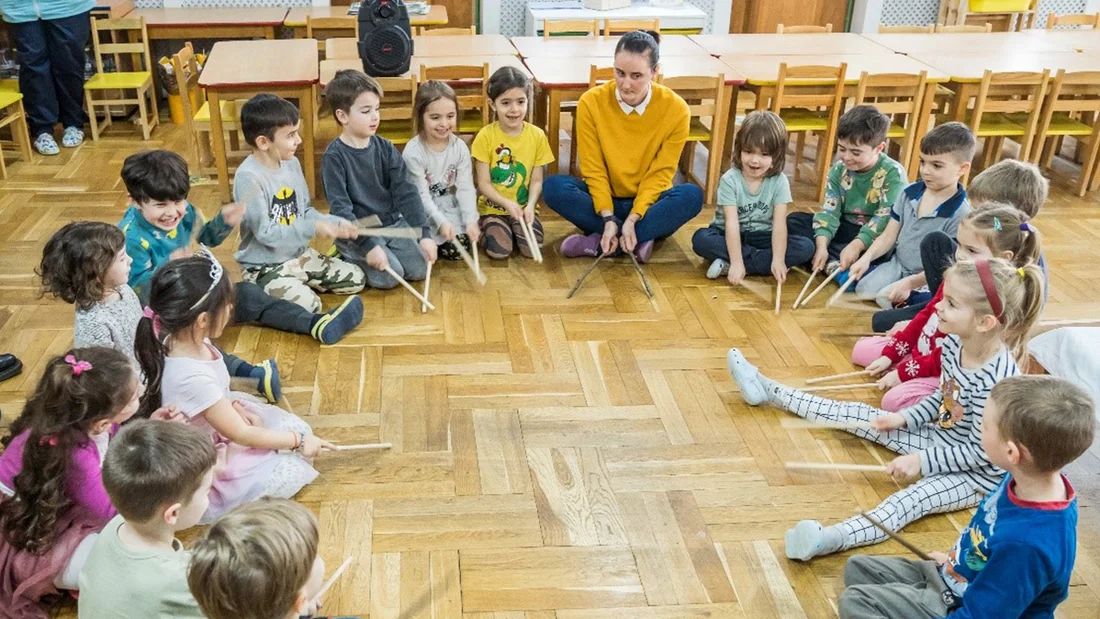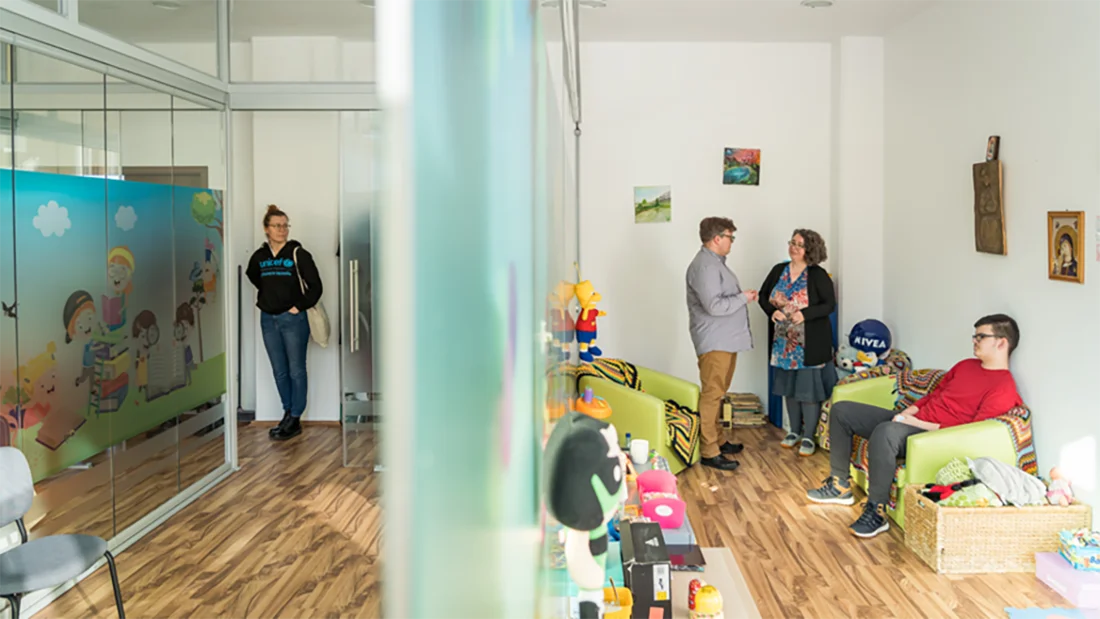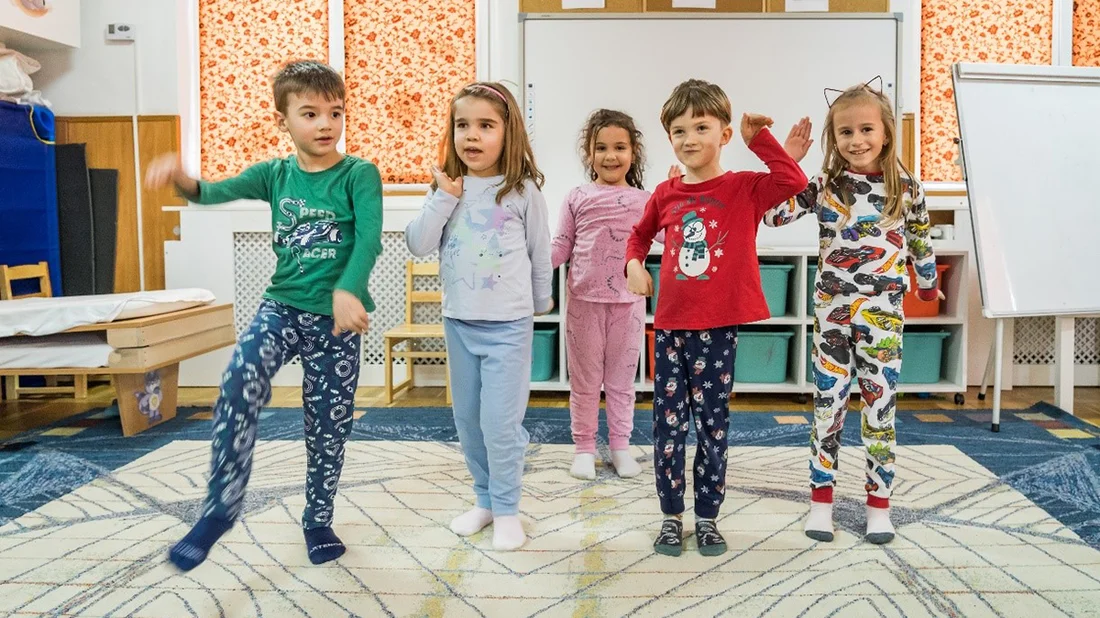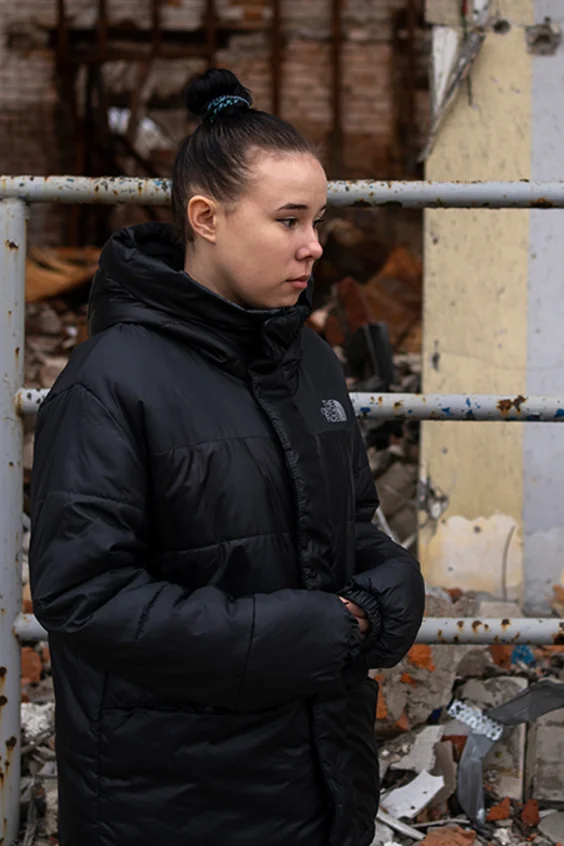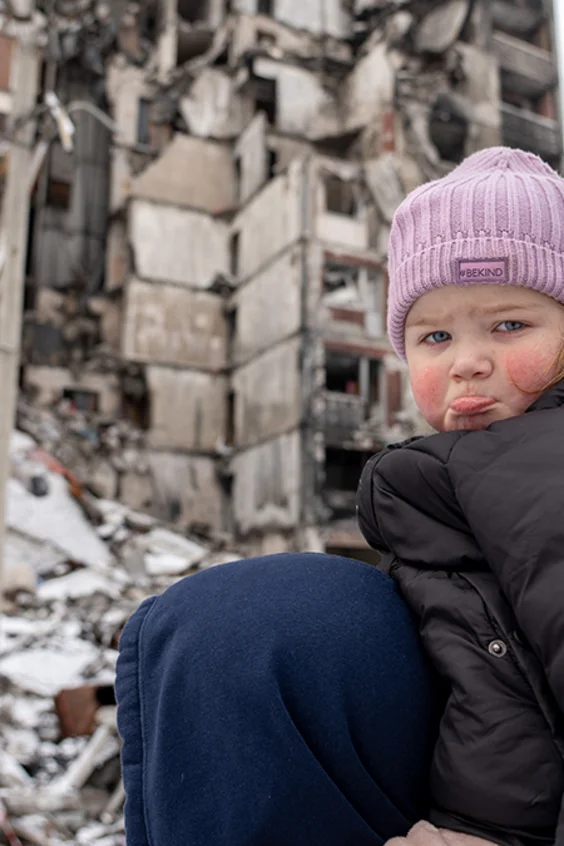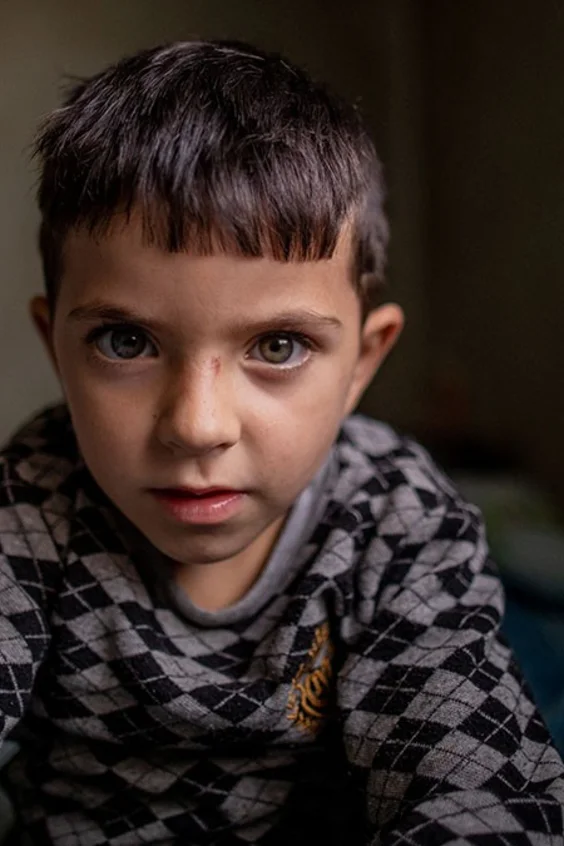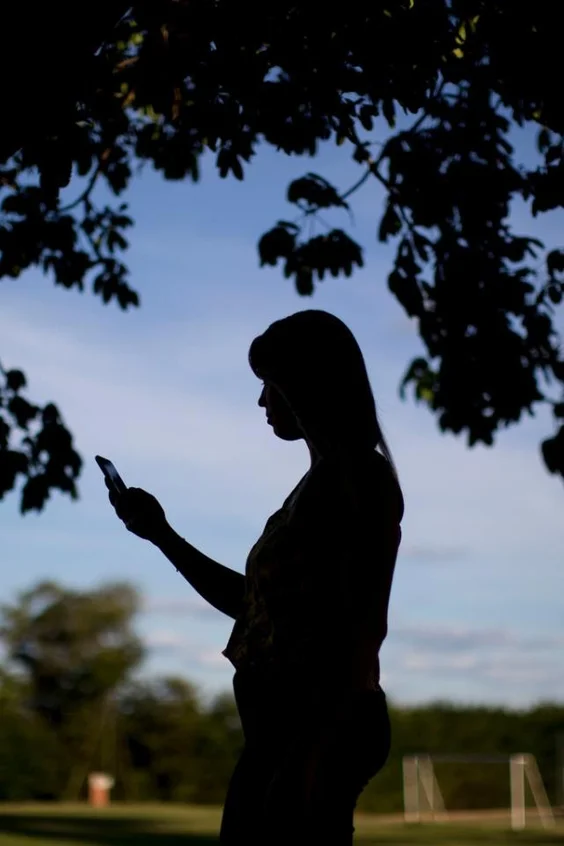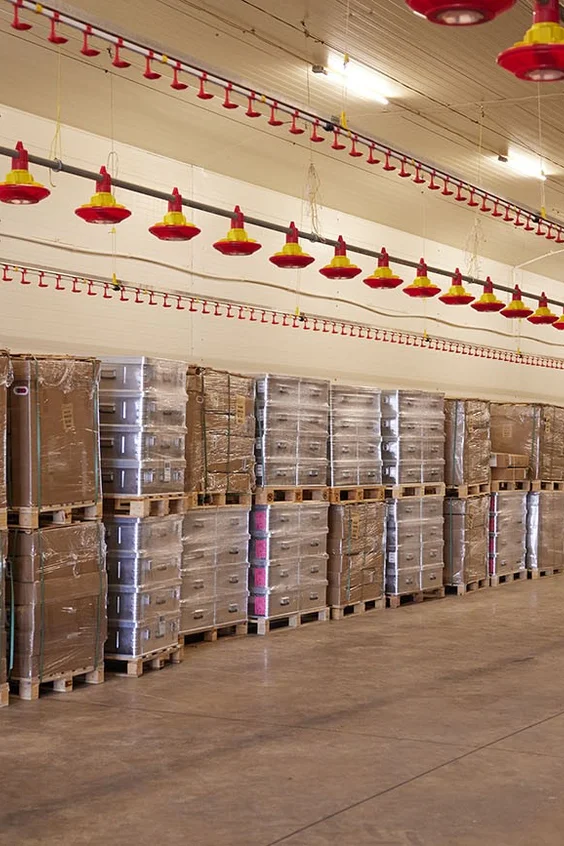Saskia Kobelt, International Program Specialist for UNICEF Switzerland and Liechtenstein, reflects on her recent field visit to Romania, where she visited several UNICEF-supported centers for children and young people.
Day 1: February 15, 2023
The day in Bucharest begins full of enthusiasm and tension. In what state will we find the children who have fled to Romania from Ukraine? How are the tireless helpers doing? What precise form does UNICEF’s help on the ground take?
Our driver Viorel drives me to the UN House early in the morning in the UNICEF van. When we arrive, the welcome from the UNICEF staff eases the tension. The briefing from the experts on the situation in the country, the challenges, plans, strategic approaches, successes and outlook give me an appropriate preparation for the coming days.
UNICEF has been in Romania for decades, protecting the rights of all children in the country, and is now working with the Romanian government, national and local authorities, the UNHCR and other UN agencies to respond to the Ukrainian refugee crisis.
Despite many positive developments, particularly since its accession to the European Union, Romania continues to face many demographic and social challenges. The overall population is decreasing rapidly. Only Syria has a higher rate of emigration than Romania. In addition, half of all people in rural areas are at very high risk of poverty and social exclusion.
Although Romania is primarily a transit country, the war in Ukraine has led to a sharp increase in the number of refugees entering the country, with a total of 468,765 people arriving to date. This places an additional burden on the country’s care services, which are only tailored to the specific needs of the Romanian population.
While the context meant that the focus in the first few months had to be on the emergency response, my visit to Romania shows that the acute crisis is now changing. And the needs of the affected population are also changing as a result. In this triple nexus between short-term humanitarian aid, medium- and long-term development aid, and peacebuilding, programs have to be restructured and rebalanced, and systems for long-term development need to be built. At the same time, we have to ensure that all children and young people in Romania have equal access to healthcare, education and social security services.
My colleagues from the UNICEF Romania office tell me that the current situation is also seen as an opportunity. After years in the background, Romania is finally back in focus as financial subsidies make many support programs for children in Romania feasible again.
First stop: Play is the best therapy
The Play and Learning Hub is implemented by UNICEF’s partner organization the Angel Appeal Foundation. The hub’s employees have worked hard to set up the two small rooms in such a way that the children can feel particularly comfortable, and they have succeeded: The atmosphere is warm and welcoming. Distributed on the floor are numerous toys such as Lego blocks, books and dolls. Stuffed toys are piled high on the wall shelves. Children who have fled Ukraine are offered protection here. But it’s more than that. They can finally play, be a child again, and for a moment forget the horrors of war. The opportunity to play with the children touches me. Far from day-to-day office life, it’s these children who put a smile on my face. They have already been through so many terrible experiences in their short lives, experiences that will shape their entire lives. They suddenly became refugees, uprooted and driven from their homeland.
But even as the children in the Play and Learning Hub play, laugh and forget their fears for a moment, the war in Ukraine continues. Despite their initial hopes of a brief exile in neighboring countries, it is unlikely that the 35,640 Ukrainian refugee children currently in Romania will be able to return home before the war is over.
Second stop: Protection and education for children in need
Our next stop is a support hub for children set up by UNICEF in collaboration with the ANAID Foundation. The Pipera support center provides a friendly learning environment for Ukrainian children. With the help of the teachers employed there, they attend classes based on the Ukrainian school curriculum and then take part in Romanian and English lessons as well as all kinds of practical activities. In the meantime, their mothers can go about their work. The aim of this project is to provide children with access to education in a safe environment, and to encourage mothers to look for work in order to earn a living.
All of a sudden, the children’s huge suffering becomes immediately tangible and visible. A seven-year-old boy shyly looks up from his craft table. Previously, in class, he had sat exhausted in his chair next to other, much older children, trying to follow the lesson. His thoughts were elsewhere. Now he sits completely absorbed at the craft table, forming guns and tanks with his small child’s hands. The experiences of the past few months have been imprinted on his memory.
When children are struggling with complex emotional problems, this is often reflected in how they play. Playing enables them to process feelings such as pain, anxiety or loss. It gives them the opportunity to express things that they are struggling with but cannot yet put into words.
Young brains develop fastest in the first five years of life. Positive play experiences help babies and children learn how to connect and cope with their environment. Play promotes children’s cognitive, physical and socio-emotional growth, as well as their communication skills and empathy.
For refugee children in particular, playful learning can have a positive effect, as they are interacting with adults. It is precisely this kind of attention and shared play that is particularly important when dealing with the traumatic experiences of war refugees.
Third stop: RomExpo: Bucharest’s central point of contact for refugees
UNICEF is working with countless partner organizations and the government to set up Blue Dot Safe Spaces, protection and support centers and other contact points for children and women throughout Romania. The last stop of the day is the RomExpo, the largest exhibition center in Romania. 230,000 children and women have now been accommodated there. Services available at this central point of contact include:
- a mother-and-child playground
- breastfeeding guidance
- psychosocial support
- legal advice
- a social market
- the distribution of food rations, clothing and social vouchers
- a playroom where children are looked after while their accompanying persons deal with the authorities or other matters
Onward journey to the north
The sun is already starting to disappear behind the emergency aid containers on the exhibition grounds as we begin the three-and-a-half-hour drive to Brasov in the Transylvania region. It’s quiet in the car, as we’re all exhausted. Our thoughts are with the children and mothers who made the long journey from Ukraine to Romania full of fear and worry. With the hope of safety and protection. The expanses of the Romanian countryside pass us by. The war in Ukraine is also very palpable in Romania.
Day 2: February 16, 2023
I didn’t get much sleep. Too many thoughts about the children were circling. I’m hugely moved by their misfortune.
First stop: The CATTIA Blue Dot Center
The first stop of the day is the CATTIA Blue Dot Center, a community center where families can receive integrated and basic services. Children are given access to education, and refugees can seek psychosocial support and legal advice.
What makes the CATTIA center so special is that it also provides temporary or longer-term housing for refugees, with a café, laundry, clothes exchange and sewing studio in addition to the accommodation. The center was set up in a very short time and with limited financial resources by numerous volunteers from the city in collaboration with refugees. The wide range of activities that are offered here every day, the unwavering dedication of the staff, the creativity and the pragmatic approach to implementation are truly impressive.
I mostly meet women and children. The majority of the men had to stay behind in Ukraine due to conscription. And yet, despite the uncertainty, despite the traumatic experiences, and despite the fears for their future, the positive and motivated mood of the people there is clearly discernible. The locals are also doing their part to make the CATTIA Blue Dot Center a very special place.
Second stop: Kindergarten for everyone
Our next stop is an integrated kindergarten supported by UNICEF, that cares for around 250 Ukrainian infants with special needs. Half of the children suffer from food allergies, while ten percent of them require care adapted to their needs.
The children’s all-important midday nap starts during our visit. We use the time to chat to the kindergarten staff, who explain to us that a good pre-school education is an important foundation for a child’s later life. Despite the proven lifelong benefits, tens of thousands of children, mostly from low-income Romanian families, rarely attend early childhood education programs. For those children who do have access to education programs, poorly trained teachers, overcrowded classrooms and an inadequate curriculum reduce the quality of the education they receive.
To address this, UNICEF is working with local care and teaching staff to build up the necessary capacity and expand the curriculum so that children are able to have an integrated learning experience. At the same time, teachers are being trained in the specific vocational skills required for working with young children with special needs. The curriculum and activities are also being developed and diversified in order to strengthen integrated and inclusive early childhood education in Romania over the long term.
Final stop: Visit to UNICEF’s integrated community centers
Romania is home to 3.7 million children. But not every child feels at home here. Many of them do not have adequate access to basic resources such as food, running water, health services or energy. More than 40 per cent of children live in families affected by poverty, discrimination and social exclusion. They are exposed to physical and emotional abuse and violence on a daily basis. Children with special needs are particularly at risk in Romania.
To break the vicious circle, children mustbe offered better prospects. Longer-term solutions are needed to support those affected. As a result, the accessibility and quality of integrated basic and specialized services, including health, education and social care, are of paramount importance for UNICEF. Working with partner organizations, it has set up integrated community centers where experts from different fields provide specialist services free of charge. The centers are staffed by social counselors, community nurses and educational and medical staff, along with specialist speech therapists, physiotherapists and psychologists.
At the community center, I meet a single mother and her physically and mentally disabled son whose story has really stayed with me. The boy fell badly one day, but his mother did not have the financial means to pay for adequate medical care. Thanks to UNICEF, he was able to be treated with the aid of daily physiotherapy sessions. Both his mother and the UNICEF staff member who is accompanying the boy on his journey to recovery are close to tears as they tell his story. The day-to-day challenges faced by those seeking help leave their mark on everyone involved.
What I’m taking with me
Talking to each other, helping each other, being there for each other, playing together, offering each other protection, laughing together, supporting each other, listening to each other. It is values like these small gestures that give us, especially the children, confidence, hope and strength in such turbulent times. Values that are increasingly being forgotten. But the power that lies within them can move mountains. I was able to experience this in Romania.
